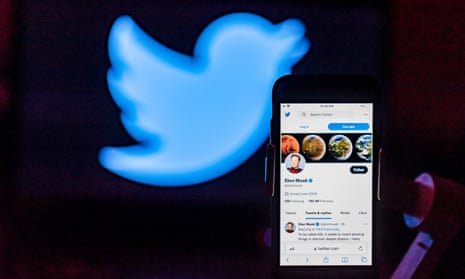Elon Musk’s Twitter abruptly dissolved its Trust and Safety Council on Monday night, just moments before it was scheduled to meet with company representatives.
The council was an advisory group of nearly 100 independent civil, human rights and other organizations that the company formed in 2016 to address hate speech, child exploitation, suicide, self-harm and other problems on the platform. But Twitter informed the group via email that it was disbanding shortly before the meeting was to take place on Monday, according to multiple members.
The council members, who provided to the Associated Press and other outlets images of the email from Twitter, spoke on the condition of anonymity due to fears of retaliation.
“Our work to make Twitter a safe, informative place will be moving faster and more aggressively than ever before and we will continue to welcome your ideas going forward about how to achieve this goal,” said the email, which was signed “Twitter.”
The news appeared to deepen the turmoil that has beset the company following Musk’s takeover. Also on Monday, it was reported that Twitter’s former top safety official, Yoel Roth, was forced to flee his home amid escalating personal attacks, including from Musk himself.
Outlets including the Washington Post and CNN reported on Monday that Roth and his family fled after Musk’s tweets misrepresented Roth’s academic writing about sexual activity and children.
As head of trust and safety at Twitter, Roth was involved in many of the platform’s decisions about what posts to remove and what accounts to suspend. His communications with other Twitter officials have been posted in recent days as part of what Musk has dubbed “the Twitter files,” a series of internal documents that Musk has shared and disseminated on the platform via journalists including Matt Taibbi and Bari Weiss.
Musk’s tweets to his tens of millions of followers have for years prompted his supporters to deluge the targets of his ire with online threats – famously, a participant in the rescue of a boys soccer team trapped in a cave in Thailand who Musk branded “pedo guy.” But now that Musk owns one of the most powerful social networks in the world and has gutted the division that previously policed online harassment, the stakes are even higher.
Musk’s recent condemnation of Anthony Fauci, the top US health official, has also drawn rebuke. Musk over the weekend tweeted: “My pronouns are Prosecute/Fauci.”
Karine Jean-Pierre, the White House press secretary, called Musks’ comment “dangerous” and “disgusting” in a press briefing on Monday.
“They are disgusting, and they are divorced from reality, and we will continue to call that out and be very clear about that,” Jean-Pierre said on Monday. She praised Fauci’s handling of public heath crises, including the coronavirus pandemic.
Fauci, who said he planned to retire in December as Joe Biden’s top medical adviser, has dealt with the thorny questions around health crises from HIV/AIDS to avian flu and Ebola, and has served as an adviser to seven presidents.
Fauci has said he has faced death threats. He has endured criticism from Trump and various conservatives who objected to safeguards such as vaccination, social distancing and masking that he advocated to try to limit the lethality of the Covid-19 pandemic.
